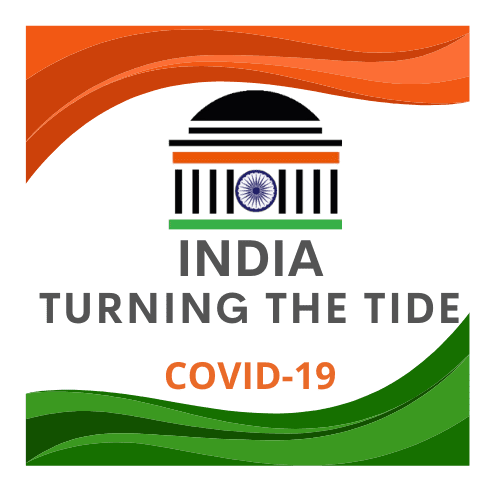Contribute
| MIT COVID19 Hackathon Challenge |
08/13/2020
#MITCOVID19Challenge August 28-30, 2020 We invite you to attend the MIT COVID-19 Challenge, a series of virtual hackathons aimed at empowering YOU to take action on the ongoing COVID-19 crisis. Our next event, India: Turning the Tide, is scheduled for August 28-30, 2020. In this 48-hour virtual event participants will focus on addressing some of the most pressing COVID-19 challenges faced by India. Your contribution to the Challenge can take the form of participant, mentor, judge, or partner organization. Participants will form teams on Friday, August 28th to home in on key problems and generate solutions, including proof of concepts, prototypes, and preliminary vision for execution. Throughout the weekend, teams will connect with mentors to refine their solutions. On Sunday, August 30th, teams will reconvene to present their work before a panel of expert judges. After the weekend, the best ideas and teams will have the opportunity to co-develop and implement their solution with the support of our partners. For more information and to apply, please check out our website. The application deadline is Sunday, August 23rd. The MIT COVID-19 Challenge event, India: Turning the Tide is proud to be supported by organizations including the MIT Martin Trust Center for Entrepreneurship, MIT Hacking Medicine, MIT Innovation Initiative, MIT International Science and Technology Initiatives, MIT-India Flipkart, Zomato-Feeding India, Parexel, Sterlite Power, IDFC Institute, American Indian Foundation and many more. https://covid19challenge.mit.edu/india/ Helping the Underserved Populations Health equity considerations and practical solutions need to be promoted for the most vulnerable - individuals subject to social discrimination and stigmatization, migrant workers, patients without proper housing and shelter, populations without access to proper health care and individuals who cannot care for themselves such as the elderly. We look forward to seeing solutions that can help deliver relief to the underserved populations effectively, efficiently and in a timely manner. Reviving the Informal Economy With the informal economy in India accounting for more than 80% of non-agricultural employment, helping develop policies and forging private-public initiatives are critical in reviving the informal economy. In India, the trade-off between mitigating the spread of virus and reviving the informal economy has been particularly striking. Daily wage workers without employment certainty or safety nets, are facing serious hardships. Whether it is balancing the need for short term cashflows or providing a sustainable model and roadmap to recovery for small business owners and the “gig-economyâ€, we look forward to solutions that can act as a force multiplier in helping the country stand back up and contribute to net GDP growth. Strengthening Healthcare Systems · The pandemic has caused undue stress on the healthcare sector in India. It has hampered the operational and tactical aspects of healthcare delivery across the country. Physicians, nurses, paramedics and other healthcare workers are overworked and under-appreciated, directly impacting their morale and willingness to serve at a time of crisis. Further, the situation has made it difficult for those affected by the pandemic to seek prompt medical attention or ancillary support services to effectively combat COVID19 and other critical illnesses. We invite the participants to rationalize, ideate and generate innovative solutions by addressing the lack of consistent private sector contribution to COVID therapeutics, irregularity in healthcare costs, increasing accessibility of COVID19 care (both fiscal and physical), strengthening quality check measures of personal protective equipment, ensuring the safety of frontline medical workers, improving testing (capacity, cost, reporting and speed), and any other solutions that can bolster the healthcare system. · Combating Misinformation & Fraud · Whether its social media posts or other forms of information consumption, there is a constant influx of distrustful information being churned out and spread consciously or unconsciously. With no easy way to fact-check, stopping the propagation of misinformation becomes difficult. At the same time, there are opportunities to help expand the dialogue and remove the “stigma†of COVID19 diagnosis to allow the transparency necessary in limiting transmission, and educating individuals regarding timely healthcare access, PPE disposal, social isolation and much more. We invite the participants to find ways to help accurately identify and stymie the spread of misinformation, while helping find critical information that is essential in combating improperly sensationalized information. ·
#IndiaTurningtheTide
You may also access this article through our web-site http://www.lokvani.com/
